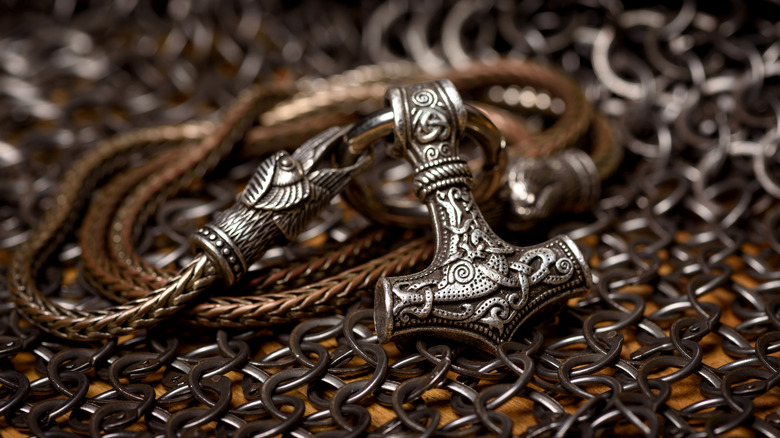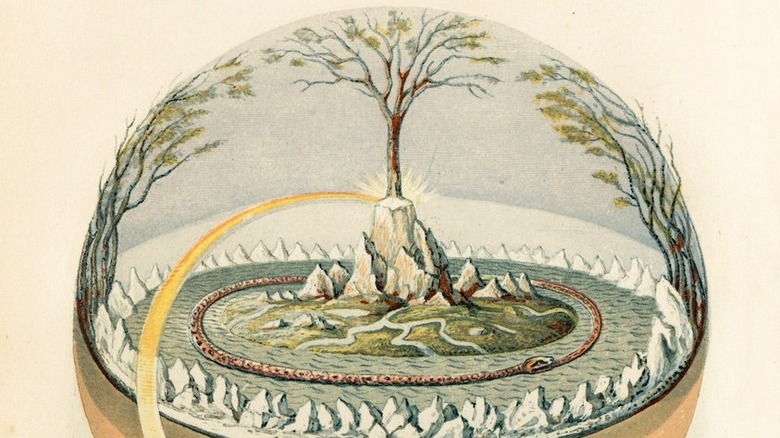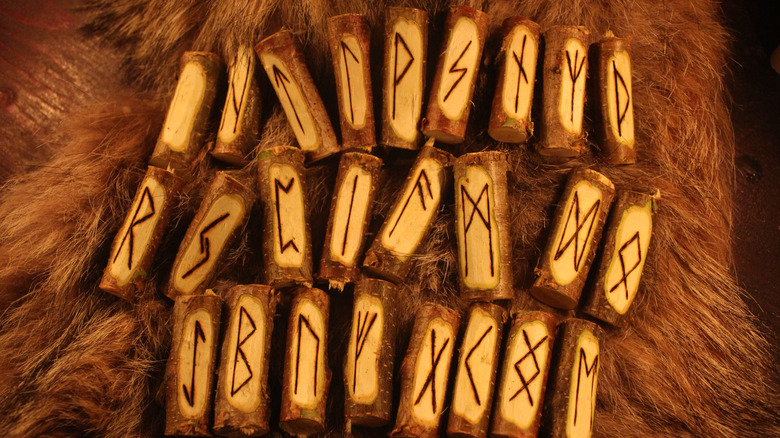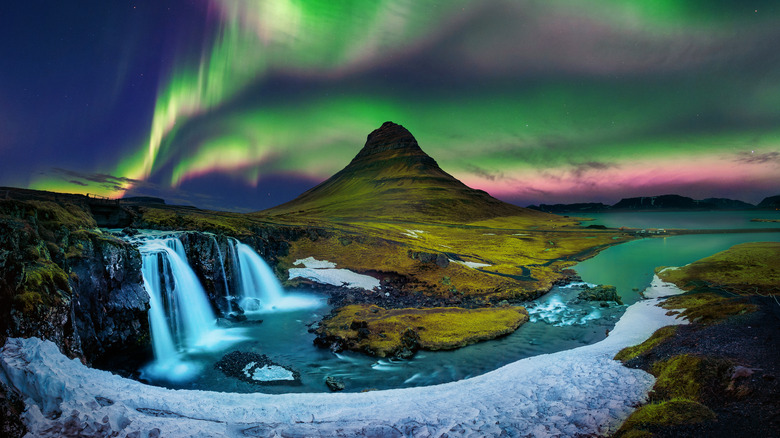What Is Asatru, Iceland's Indigenous Religion?
Iceland has always been a place of uniqueness and extremes. Its rugged, imposingly beautiful landscapes look like a vision into pre-history, much like New Zealand. And like New Zealand, Iceland wasn't inhabited until late in the global colonization game. Besides the odd monk traveling from Scotland and tucked away along the coast, no humans lived on Iceland until 874 C.E. during what's called the Viking Age (about 790 to 1100 C.E.). In a mere two-hundred years, Scandinavian-born, multinational Viking sailors, traders, and raiders made their way everywhere from Russia and Finland, down into Germany and France, and even out to "Vinland," North America.
Much like the later North American settlers who went on to found the United States, Iceland was inhabited by people seeking to make a new life for themselves away from an overbearing monarch. Ingólfr Arnarson had a feud with the King of Norway, said "see you later," and by 874 he was using a time-honored method of determining a settlement site: tossing a log into the sea and seeing where it comes ashore. This settlement went on to become Iceland's capital, Reykjavík, as World History overviews.
Iceland was populated by proud, independent, honor-bound, often brutal farmers and Vikings. No kings, no nobles, no rulers. It was a Commonwealth, the first of its kind. It came to decisions collectively at the "Althing," per Introducing Iceland, a piece of Norse tradition that involved group parliamentary-style voting. This is the heritage that gave rise to Ásatrú.
Build from Nordic lore and tales
At its heart, Ásatrú (pronounced "ow-sah-troo") is a revivalist religion seeking inspiration from the pre-Christian Nordic roots and stories that circulated amongst the Vikings at the time of Iceland's founding. Thor the thunder god, Odin the all-father, Loki the trickster, Baldur the beautiful, Fenrir the wolf, Ragnarok the end of the world, Yggdrasil the world tree: these are the Norse characters and tales that composed the Viking's shared values and morals, no matter what country they came from.
By about 1,000 C.E., the Icelandic Althing made the decision to officially convert Iceland to Christianity to avoid bloodshed and war, as Iceland Mag says. The old ways lived on, though, all the way to the present, in literature like Neil Gaiman's "American Gods" (2001), music like the runic folk-band Heilung, and even massive blockbuster entertainment projects like the MCU's versions of Asgard, Thor, Loki, and Ragnarok.
Modern Ásatrú came into being in the 1970s, piggybacking on the 1960's countercultural shift, and buoyed by the New Age movement and surge in the popularity of Wicca. It's called "Icelandic" simply because that's where the modern version came from, but it's practiced worldwide. And it's called a "religion" only loosely. There are no canonical texts, even though the "Poetic Edda" and "Prose Edda" (stories of Norse gods) are revered, no dogma, no prescriptions, and no universally practiced rituals. Ásatrú is basically a perfect mirror for those incredibly independently minded, rugged folks who settled Iceland over 1,000 years ago.
Guidelines for good conduct and public behavior
So if there are no Ásatrú universals, then what kind of "religion" is it? What do people believe? That last question reveals the heart of Ásatrú: belief is irrelevant; action matters. This, and the lack of hard rules, makes it tough for lots of Westerners to wrap their heads around.
At its heart, Ásatrú is a community-focused method of good conduct and public behavior, the kind integral for survival in small communities in the harsh natural environment of Nordic countries. The closest to an Ásatrú "creed" might come from Havamal, a set of proverbs attributed to Odin written down in the Poetic Edda in the 13th century. These read like a list of advice from a sagely, slightly grumpy grandfather: Be generous, but don't let people take advantage of you; Enjoy food and drinks, but don't overindulge unless you want to look like an idiot; Work hard and forget about what happens after death because only your reputation will live on after you die; Friends are a critical part of life and define who you are, so be careful who you decide to make family; "Cultivate wisdom, a good memory, and eloquence, and speak kind words often" (quoted from the recent 2015 Jackson Crawford translation of the "Poetic Edda").
Ásatrúar (person who follows Ásatrú) either believe in real deities like Thor, per Learn Religions, or that they're more aspects of the human condition.
A growing spiritual movement
At present, Ásatrú, also sometimes called "Odinism," is an official, state-sanctioned religion in Iceland, with 3,000 registered members as of 2015 (per the BBC). There are marriages, naming ceremonies, annual feasts, blots (rituals), and the first non-Christian temple built on Icelandic soil in about 1,000 years. To give you an idea of the ethics of those involved, the Ásatrúar who built the temple replanted all the trees they had to uproot during construction, one by one.
Because of its connection to the natural land and its pre-Christian roots, Ásatrú is often called a "neo-pagan" or "heathen" religion, although heathen is the preferred term (to reclaim a word turned derogatory). It should be noted that the current, derogatory use of "heathen" came into general around when the monk Ælfric of Eynsham (955 to 1010 C.E.) needed to distinguish Christian rituals and ceremonies from their counterparts among indigenous beliefs (described on SD Editions). Relatedly, Ásatrúar not only try to circumvent medieval Christian influences to get as close to the original, Nordic, oral tales as possible but distance themselves from neopaganism, in general, to make sure folks don't get confused.
As for getting involved in Ásatrú? Well, much like the rest of Ásatrú, it's a matter of personal responsibility. Barring helpful texts like Halmaval, there's no central "church," no method of formal initiation, and no guide except oneself. And that certainly sounds exactly like the Vikings who first settled Iceland.



